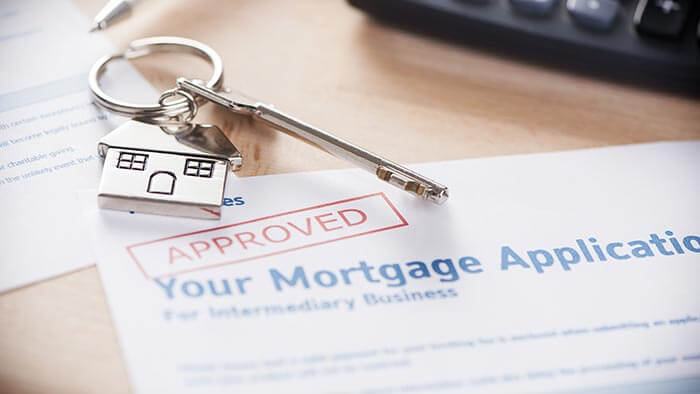When you’re buying a home or remortgaging, one of the biggest decisions you’ll make is choosing between the different types of mortgages available. The right choice depends on your budget, goals, and risk appetite.
Understanding how the main types of mortgages work can help you find the best fit for your circumstances and save you money over the long term.

These are some of the main types of mortgages available:
- Repayment mortgage
- Interest-only mortgage
- Fixed-rate mortgage
- Variable-rate mortgage
- Offset mortgage
- First-time buyer mortgage
- Buy-to-let mortgages
The type of mortgage you get largely depends on your individual circumstances. That's why it can be worth speaking to a broker who can compare mortgages to help you find the best deal.
Get more information about mortgages
What type of mortgage is best for you?
The best mortgage for you depends on factors like how you want to repay it, what interest structure works for you, and your long-term goals as a homeowner.
Repayment mortgage
With a repayment mortgage, you pay off both the loan (capital) and the interest each month.
You make monthly repayments over an agreed length of time (known as the mortgage term) which is typically between 25 and 30 years, but can vary. By the end of the term, the mortgage is fully repaid and the property is yours. This is the most common type of mortgage for residential buyers.
Interest-only mortgage
An interest-only mortgage is where you only pay back the interest of the mortgage each month.
At the end of the term, you’ll still owe the full loan amount (the capital), which you’ll need to repay through selling the property, using investments, or their pension funds.
These mortgages are less common for residential homes today but are still widely used for buy-to-let properties.
Part-and-part mortgage
Part-and-part mortgages are considered to be a combination of a repayment and interest-only mortgages. They can also be referred to as part-interest and part-repayment mortgages.
A part-and-part mortgage combines repayment and interest-only. You’ll pay off some of the loan and interest monthly, while the remaining balance is cleared at the end of the term.
The split between monthly repayments and the final lump sum depends on what you agree with your lender.
Types of mortgage rates
Fixed-rate mortgage
A fixed-rate mortgage has a set interest rate for a certain period of time. This is usually between 2 and 5 years, but can be more.
Fixed-rate mortgages help you budget your money by having consistent monthly payments.
The good thing is your interest rate doesn’t go up if the Bank of England base rate rises. But it also doesn’t go down if the base rate drops.
Variable-rate mortgage
There are 3 main types of variable-rate mortgages:
-
Standard variable rate (SVR): This is your lender’s default rate, often applied when a fixed or introductory deal ends. The SVR is set by the lender and can move up or down at any time, usually making it one of the most expensive options.
-
Tracker mortgage: A tracker mortgage follows the Bank of England base rate, usually with a set percentage added on top. Your repayments rise or fall in line with the base rate. Some trackers last for a fixed period, while others run for the full mortgage term. They can be cheaper than fixed rates initially, but less predictable.
-
Discount mortgage: A discount mortgage gives you a rate below your lender’s SVR for a set period. For example, if the SVR is 7% and you have a 2% discount, you’ll pay 5%. Your payments move with the SVR, but the discount remains fixed until the deal ends, at which point you’ll usually switch back to the SVR.
What other types of mortgages are there?
Offset mortgage
An offset mortgage links your mortgage to your savings. Your savings balance is used to reduce the amount of your mortgage that’s charged interest.
For example, if you have a £150,000 mortgage and £10,000 in savings, you’d only pay interest on £140,000. You won’t earn interest on your savings, but the money you save on mortgage interest could outweigh what you’d get in a savings account.
First-time buyer mortgage
A first-time buyer mortgage is a mortgage for those who've never owned a home, either in the UK or abroad.
There aren't any specific mortgages for first-time buyers, but there are a few schemes available to help them get a mortgage:
- Shared ownership – buy a share of a property and pay rent on the rest.
- Equity loan –a government-backed, interest-free loan to boost your deposit.
- Right to buy – buy your council house at a discounted price.
Other options include:
-
Joint mortgages - combine deposits and incomes with one or more buyers.
-
Joint-borrower-sole-proprietor (JBSP) mortgages - family or friends help with repayments, but you remain the sole owner.
-
Guarantor mortgages - a parent or guardian secures the loan with savings or property.
-
Family assisted mortgage - there are different types of this mortgage, but essentially the mortgage allows you to use income or security from a family or friend to help you buy a home.
Buy-to-let mortgage
A buy-to-let mortgage is for landlords who intend to rent their property out.
Buy-to-let mortgages usually need a larger deposit of around 20-40% of the property price, and most are interest-rate only deals. But, there are some cases where you can get a repayment version from a lender.
Generally, interest rates tend to be higher on a buy-to-let mortgage compared to a standard mortgage. And the amount you can borrow depends on how much you expect to get back in rent.
As well as a standard buy-to-let mortgage, you can get:
-
Limited company buy-to-let mortgage - for landlords buying through a company.
-
Consumer buy-to-let products - for “accidental landlords,” like those inheriting a property.
-
Portfolio mortgages - one mortgage covering multiple rental properties.
Self-employed mortgage
There aren't any specific self-employed mortgages. If you're self-employed, you can apply for the same deals as someone in regular employment. But you’ll need some extra documents for the application, including certified accounts and tax records.
So long as you can prove that you have a steady income and can make the repayments, you should be able to be accepted for a mortgage. But some lenders may be more willing to accept you than others, depending on your circumstances, so it can be worth getting the advice of a mortgage broker.
Get more information about mortgages
Bad-credit mortgage
Getting a mortgage if you’ve had bad credit can be more difficult. You may need a larger deposit, and your interest rates might be higher than for others.
There are some specialist brokers out there who can help those with bad credit find lenders who are more likely to consider them. It might also be worth looking into building your credit back up before you take on a big debt like a mortgage.







